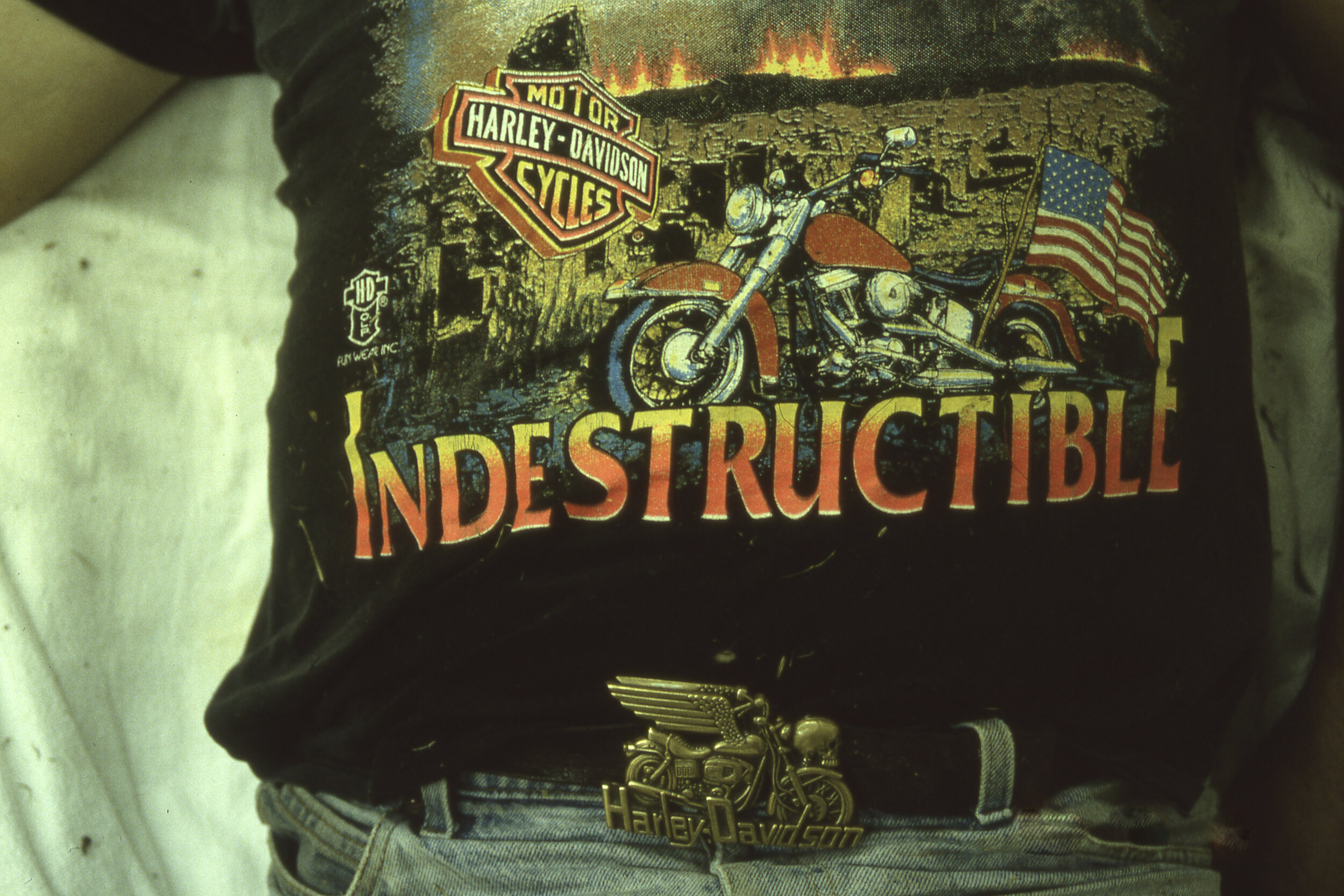Pathology
“Like those between the violence of a car wreck or isolated suicide to an almost timeless, rural landscape. The tragic nature of these photographs emphasizes the end of a person’s life and informs their entire past.”
"Pathology," an exhibition of crime scene photographs from northern Indiana during the 1980s taken by Taylor and Grant Lewandowski's grandfather. These two brothers spent a year digging through their grandfather's attic and uncovering dusty slides in unmarked boxes to understand a hidden piece of their family history and highlight the more deleterious aspect of rural life. What they found were striking photographs of suicides, car wrecks, botched train track crossings, knife wounds, and other scenes in the haunting landscape of cash crops and highways.
Like other photographers concerned with perverse material, like Arthur Felig, aka Weegee, with his devotion to capturing the seedy underbelly of New York City nightlife, or Micahel Lesy's project, Wisconsin Death Trip, cataloging the work of Charles Van Schaick to depict a smalltown's dissolution, Taylor and Grant Lewandowski reveal their grandfather's photography when he was a Coroner, adding a greater depth to the Midwest and challenging stereotypes of a bucolic landscape and, certainly at that time, idealistic, Reaganite rhetoric. "Pathology" forces us to face a certain degree of truth, especially against the historically prudish social mores of Indiana and the Midwest, and turn our attention to more ethical discussions of who we are and what we become.
Taylor Lewandowski mentions in the Introduction of Pathology (the accompanying photography book published by Nighted) his own personal reevaluation by questioning his origins and facing the morbid reality of life by unearthing these photographs and discussing them with his grandfather. This exhibition is concerned with asking questions about our own lives and how they are affected by transience, tragedy, and turning our vision back upon the present. Taylor Lewandowski concludes, "The end always turns back to the beginning. These are not complete portraits, only a fragmented collection. They serve as a great reminder that the life examined never ends, but continues well beyond our period of disappearance."


